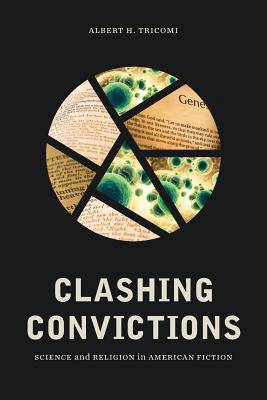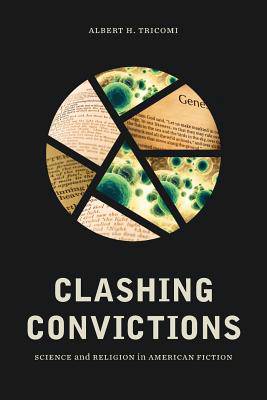
- Afhalen na 1 uur in een winkel met voorraad
- Gratis thuislevering in België vanaf € 30
- Ruim aanbod met 7 miljoen producten
- Afhalen na 1 uur in een winkel met voorraad
- Gratis thuislevering in België vanaf € 30
- Ruim aanbod met 7 miljoen producten
Zoeken
Omschrijving
Clashing Convictions: Science and Religion in American Fiction is the first study to identify a body of twentieth-century American fiction that represents the increasing tensions experienced by people of Christian faith in response to Darwinism, the higher biblical criticism, and modern medicine. Delineating how these works dramatize clashes between scientific and conservative Protestant understandings of the world, Albert H. Tricomi examines a canon of ten novels and one iconic play that present a cultural history of inner turmoil as well as social conflict. The three parts of the study chart this increasing inner turmoil, a rising secularist ideology, and finally a fundamentalist revival among alienated biblical literalists. With chapters on James Lane Allen's The Reign of Law, Harold Frederic's The Damnation of Theron Ware, William Dean Howells's The Leatherwood God, Sinclair Lewis's Arrowsmith and Elmer Gantry, Jerome Lawrence and Robert E. Lee's Inherit the Wind, and James Scott Bell's The Darwin Conspiracy, Tricomi offers new readings emphasizing how this canon represents science and religion as in deep, if not irreconcilable, conflict. Tricomi's sweeping study, with its emphasis on the twentieth century, thus reveals from several directions the processes of secularism even as it identifies the emergence of what some have come to describe as the current "postsecular" moment in America.
Specificaties
Betrokkenen
- Auteur(s):
- Uitgeverij:
Inhoud
- Aantal bladzijden:
- 248
- Taal:
- Engels
- Reeks:
Eigenschappen
- Productcode (EAN):
- 9780814253076
- Verschijningsdatum:
- 1/10/2018
- Uitvoering:
- Paperback
- Formaat:
- Trade paperback (VS)
- Afmetingen:
- 152 mm x 229 mm
- Gewicht:
- 358 g

Alleen bij Standaard Boekhandel
+ 101 punten op je klantenkaart van Standaard Boekhandel
Beoordelingen
We publiceren alleen reviews die voldoen aan de voorwaarden voor reviews. Bekijk onze voorwaarden voor reviews.











